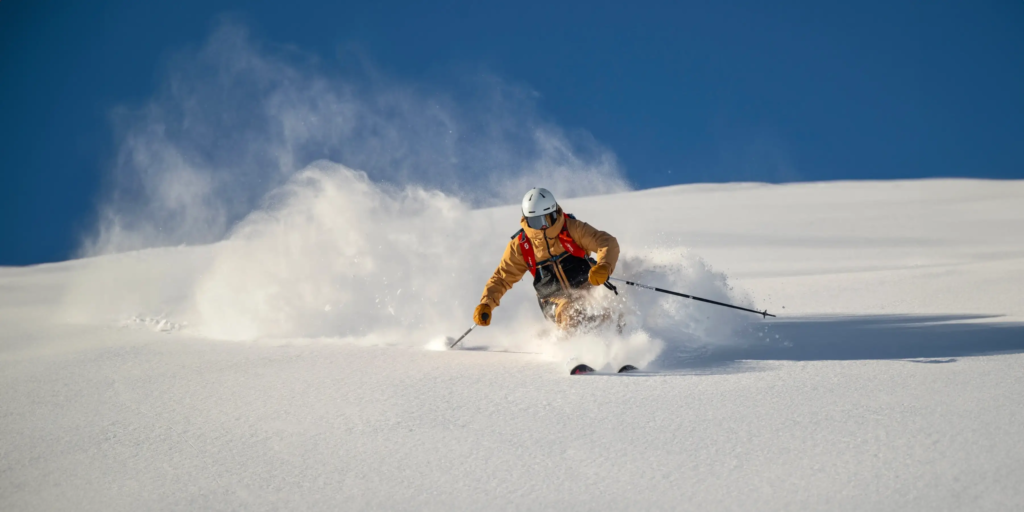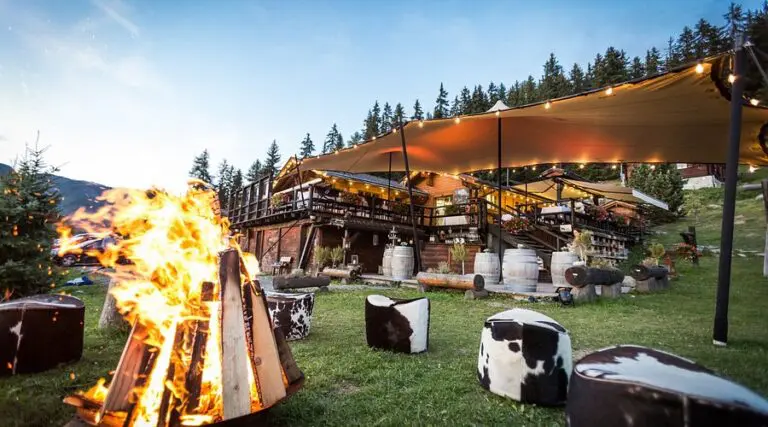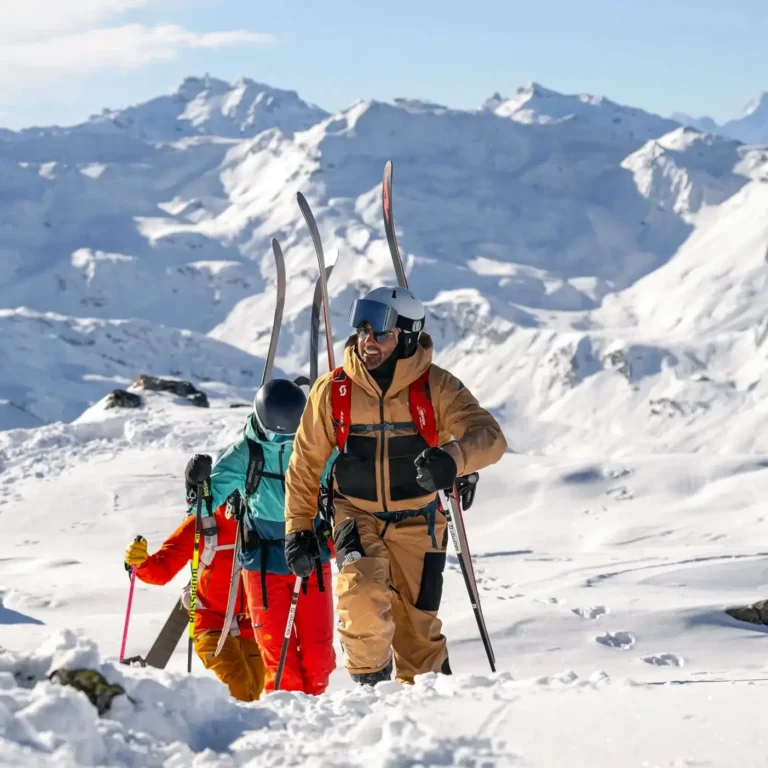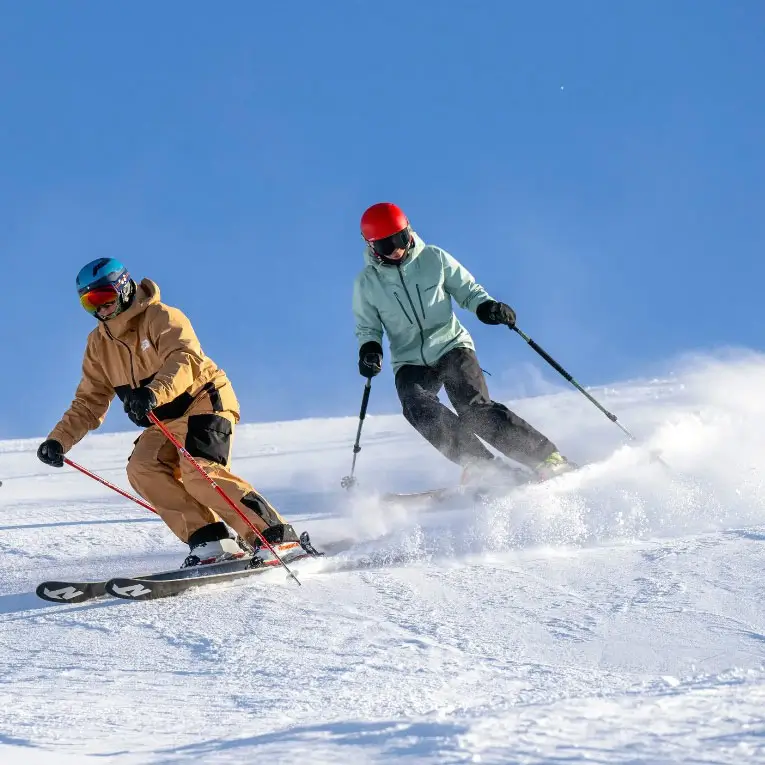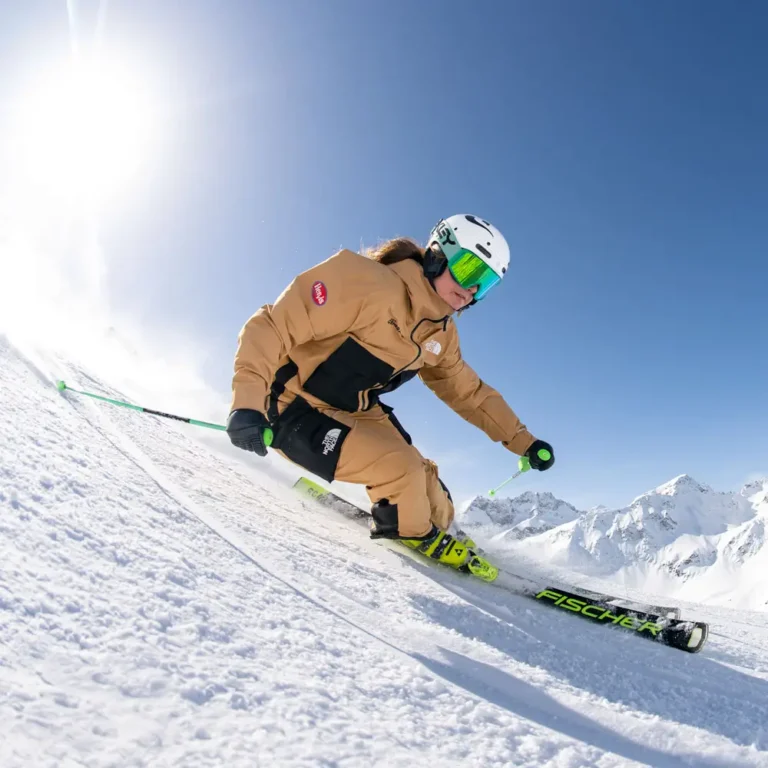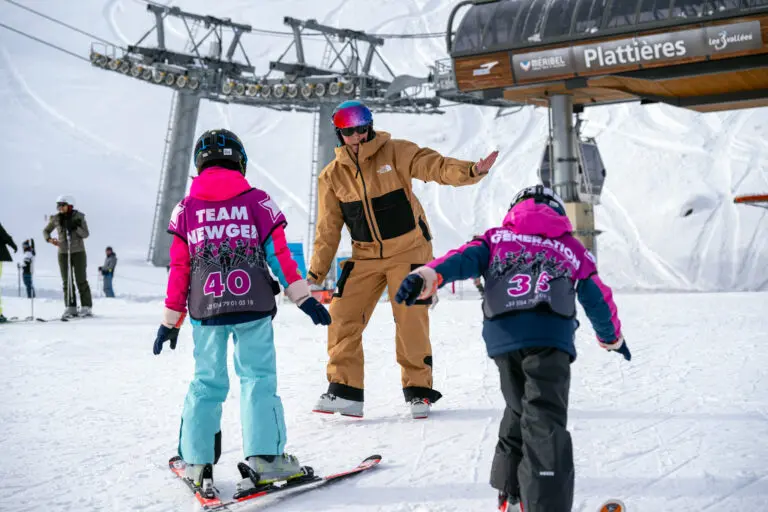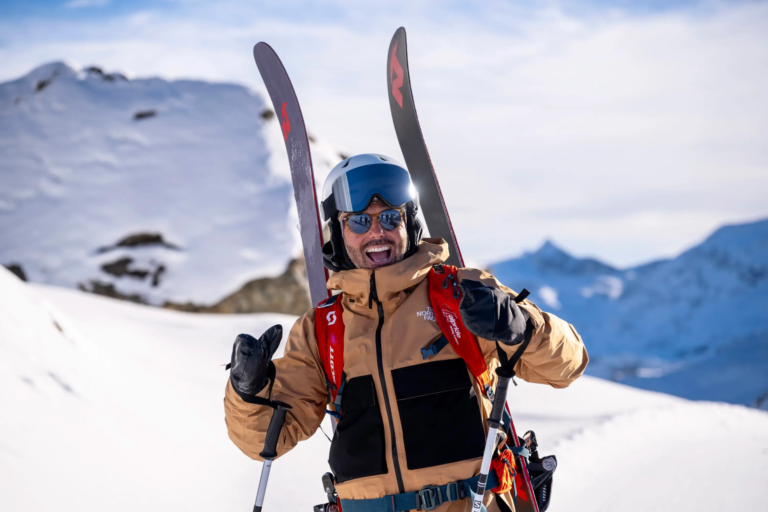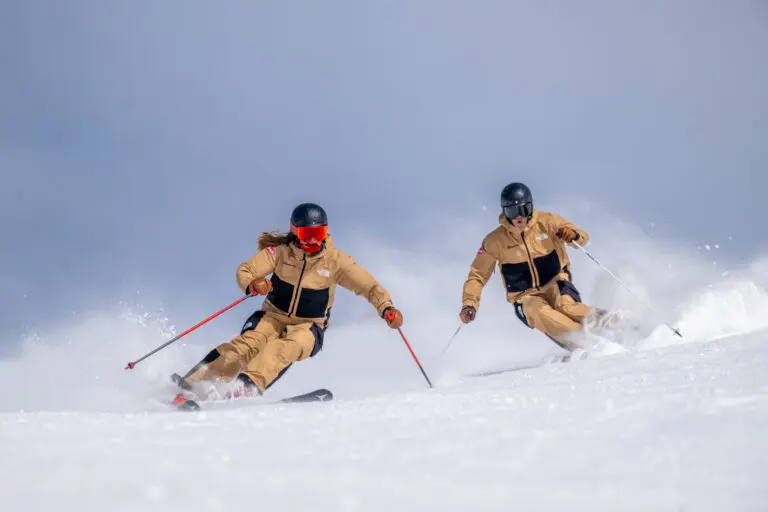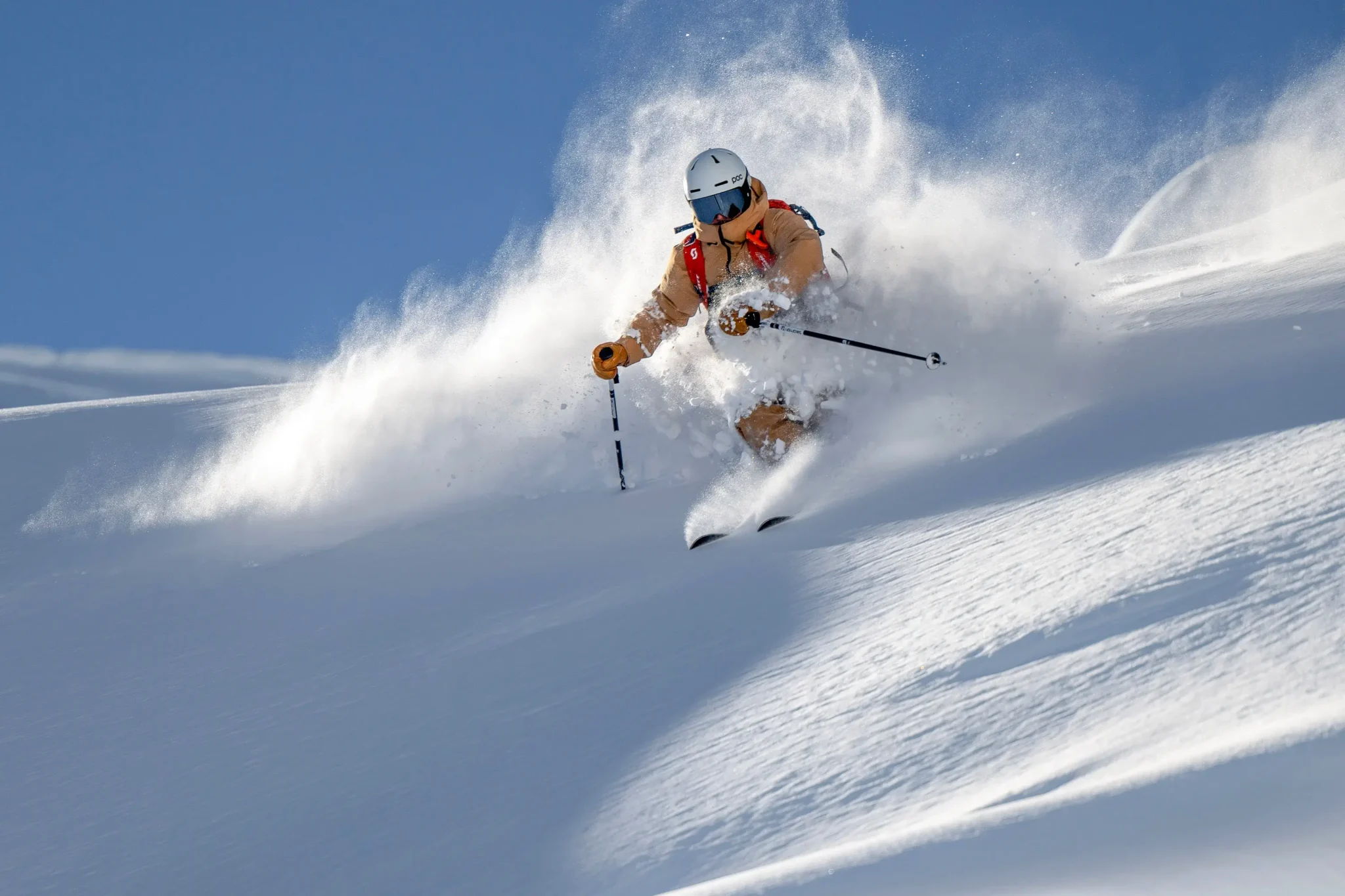We all want to get better. And if you don’t, you’re holding yourself back without realising it.
One of the great things about skiing is that you never really reach a glass ceiling of improvement. There is always room to improve, even if you’ve been skiing your whole life, so we’ve put together ten tips to improve your skiing – no matter what level.
10 TIPS TO IMPROVE YOUR SKIING
1. Get proper-fitting ski boots.
It’s natural to think that your skis are the most crucial piece of kit, but all the magic happens in the boot. Your ski boots are your most important equipment, so getting them right is essential. Well-fitting ski boots will give you more control over your skis and more comfort throughout the day.
So, if you’ll splash out for any gear, start with your boots. Ellis Brigham has an expert boot fitting service and can help you find the perfect pair for your ability level. They’ll also teach you how to buckle your boots so they’re not too loose – which can cause too much movement and less control of the ski – or too tight – which can lead to cramping and a potentially numb foot!
Top Tip: Be sure only to wear one pair of socks! Two pairs can lead to lumps, which can lead to painful rubbing.
2. Layer properly.
Mastering layering for skiing will enable you to feel your best on the hill. Too cold or too hot will be frustrating and make everything more difficult. Check out our ultimate guide for how to layer for skiing for everything you need to know.
3. Wax your skis.
If you’ve got your skis, you want to ensure they’re freshly waxed (the ski hire shop will ensure this if you’re renting). You’ll be gliding straight past everyone on the flats with a smug grin on your face as well. 😉
If you want to give it a go, here is everything you need to know about waxing your skis.
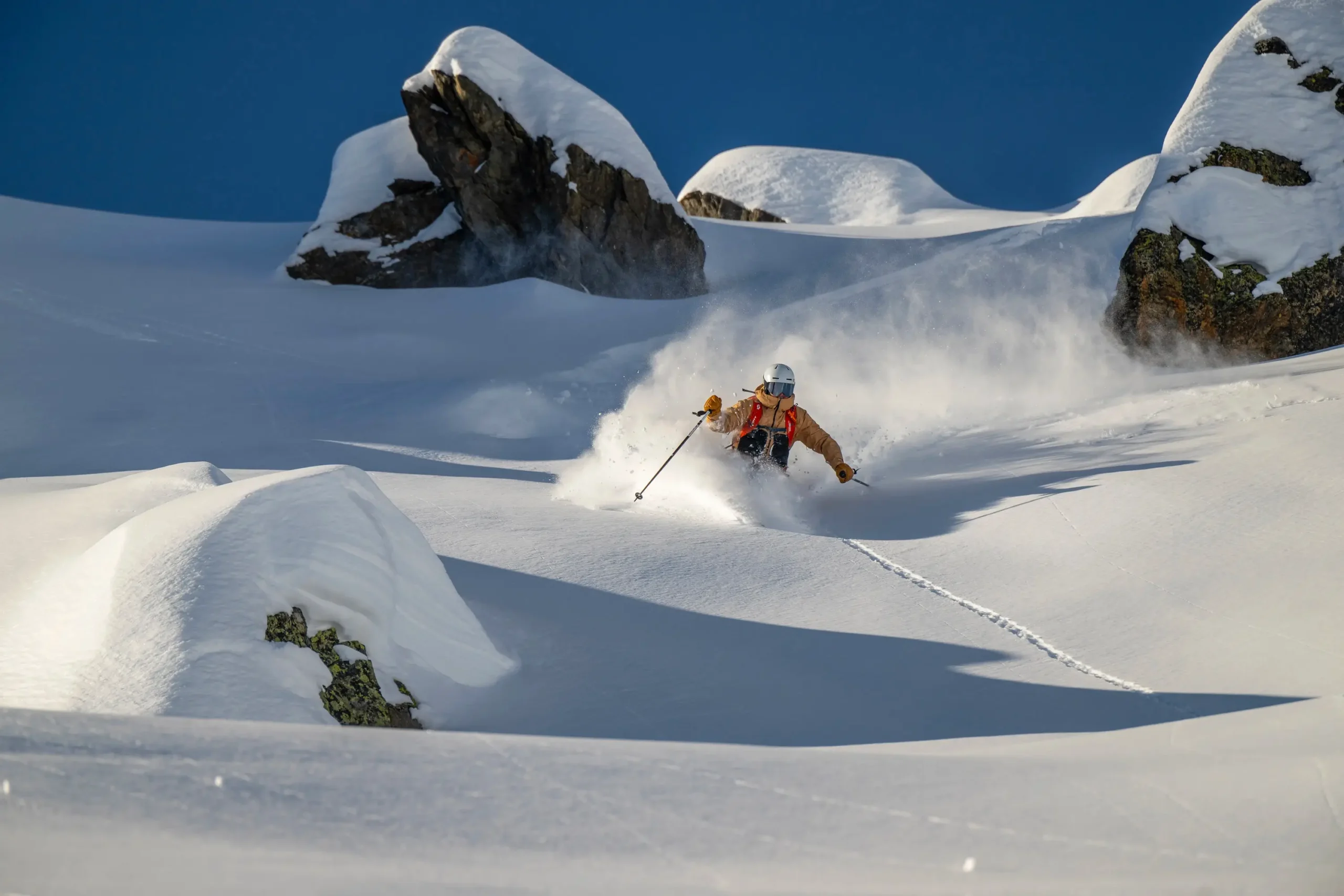
High-tech gear can also help boost your skiing. Check out the latest ski tech.
4. Get ski fit before you go.
So, we might not all be as fit as our ski instructors. However, even a bit of exercise before your next trip can make a difference. The key areas to focus on are cardio, strength and flexibility. If you can do both of these, it will make you more robust on the mountain and help prevent any injuries.
We’ve got several ski fitness tips for you:
5. Take it easy on day one
Take it easy, whether it is your first day ever on skis or just your first day back for the season. You’ll need some time to find your ski legs. Skiing can be a big confidence game. If you rush past your ability level, then when it becomes difficult, you’ll find yourself struggling and can lose confidence. Build strong foundations first.
6. Keep your shoulders straight.
When you’re ready to push yourself further, keeping your shoulders straight is a great way to improve your skiing. If you end each turn facing the side of the piste, you’re turning with your shoulders. This wastes energy and only works well on groomed runs. When you need to tackle choppy snow,
A good exercise is to hold your poles both in two hands across you at chest height. Keep them facing down the hill and level as you make slow turns. You’ve probably seen people doing this exercise on the slopes because it’s good!
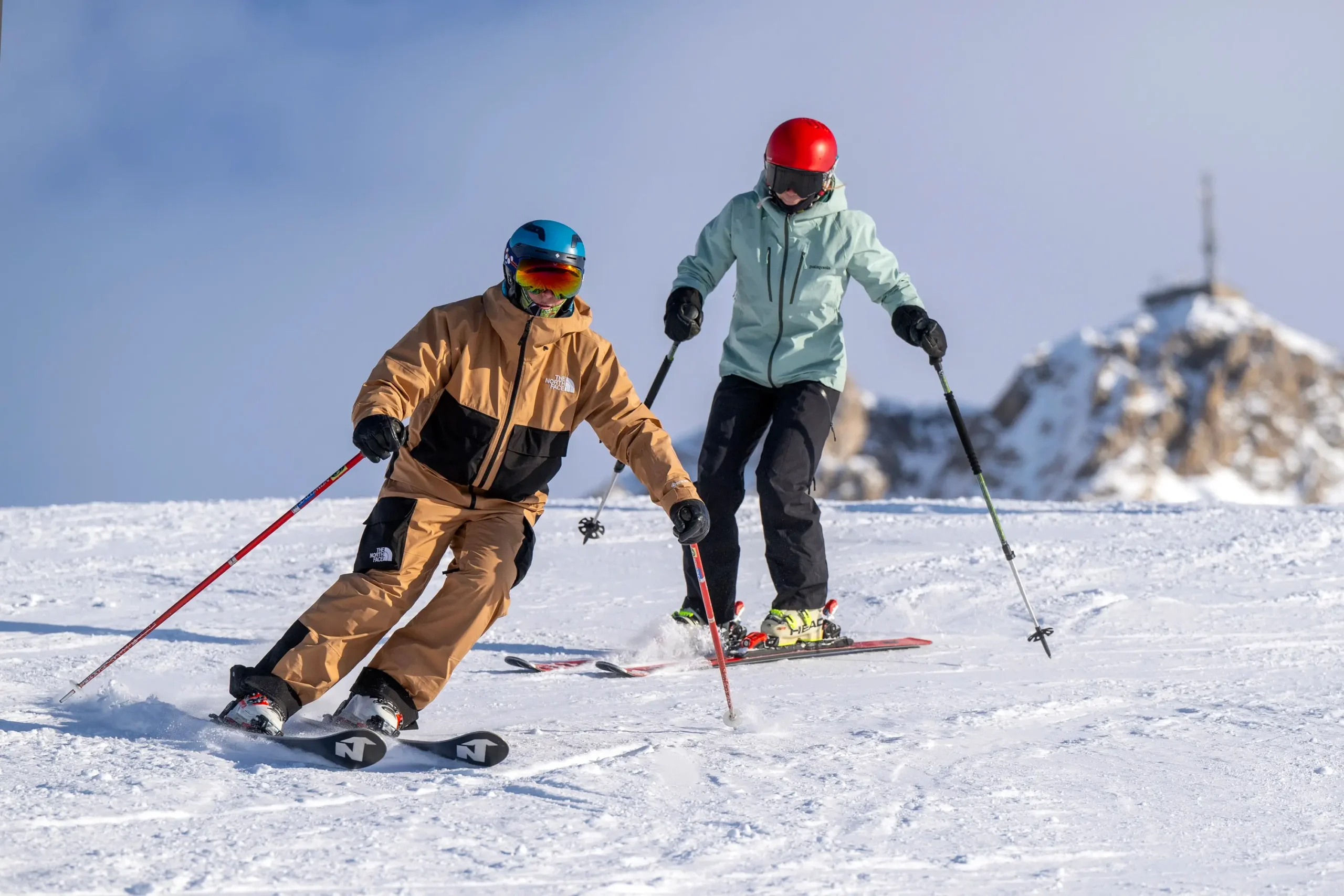
Have a feeling you’ve built up some lousy ski habits? Here are five you need to break ASAP.
7. Look ahead.
Skiers often focus only on the turn they’re making rather than what’s coming next. This only allows you to ski part of the piste properly. It can lead to situations where you’re unprepared for that massive lump of snow because you weren’t looking out far enough ahead!
Try to look out horizontally rather than downward. This will help your balance, keep your body position neutral, and turn decision-making. When you see where you want to be, your body is prepared and moves accordingly.
8. Take a ski lesson.
You knew we were going to say it, right?
Ski lessons are beneficial no matter what level of skier you’re. They’re crucial for beginners to learn proper techniques and tips and tricks early on – we highly recommend group lessons where you can learn in a social setting. However, clinics are equally beneficial for advanced skiers to build new skills and explore more of the mountain. You’re never too good for a lesson. The best athletes in the world have lessons every day, and they call it coaching.
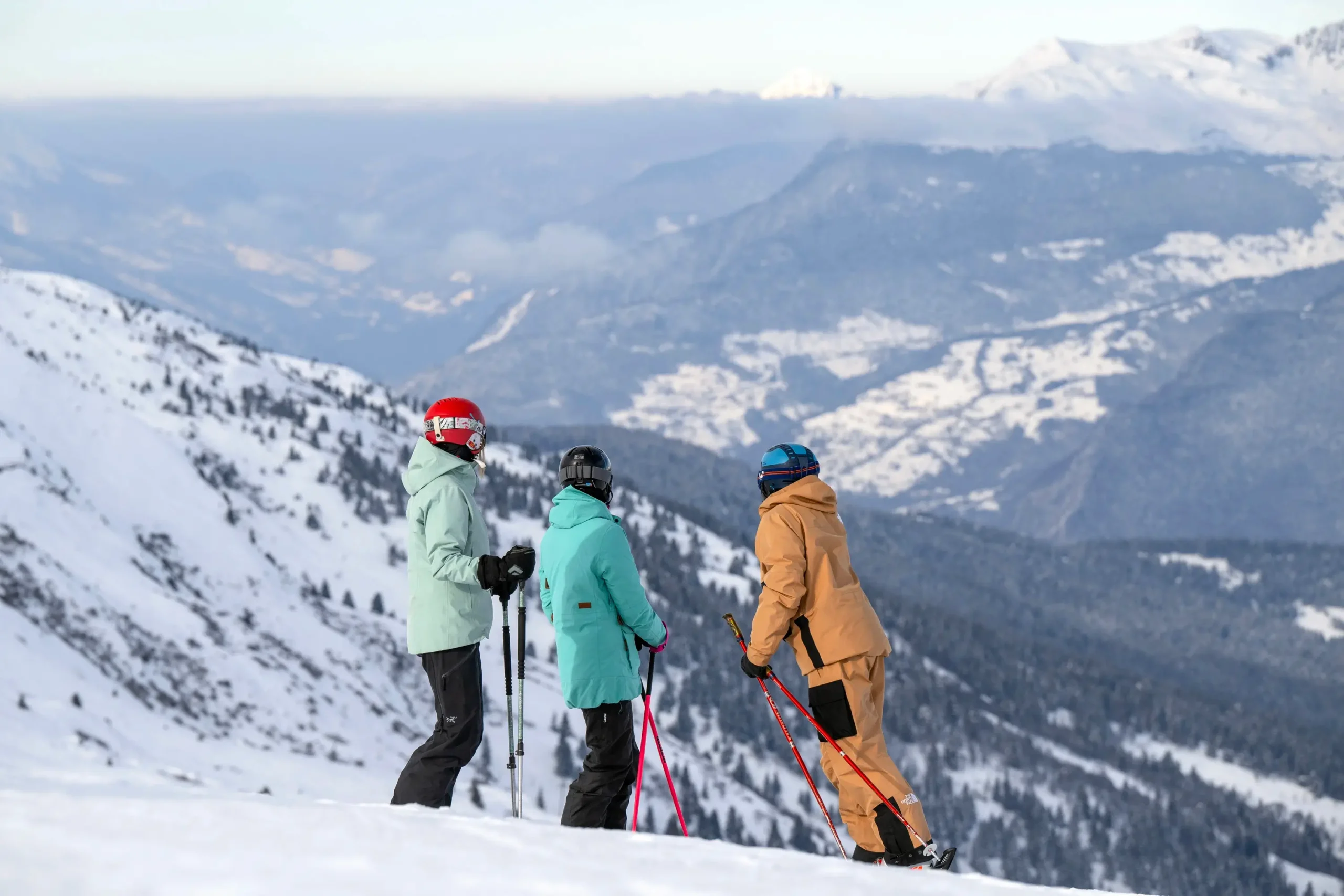
9. Practice outside of your lesson.
Use your free time to practice and apply what you’ve learned in your lesson. Stay away from how you used to ski or try to tackle a more challenging slope. If you can apply what you’ve learned the afternoon after your first two lessons, before you know it, you’ll have made considerable progress. Push hard at the start of the week. Don’t go more difficult, but repeat what you’ve learned repeatedly.
10. Enjoy it.
You’re on holiday, after all!
If you’re relaxed and happy, learning will be fun and fast, and you’ll get much more out of the experience. Breathe in the fresh air, enjoy the views, and spend quality time with your friends and family. And remember: skiing isn’t always about finding the best technique but enjoying it as much as possible.
